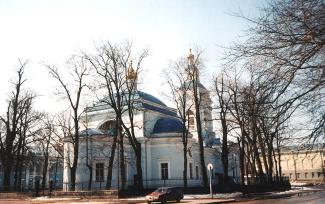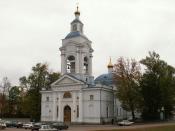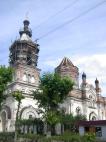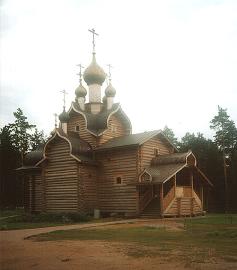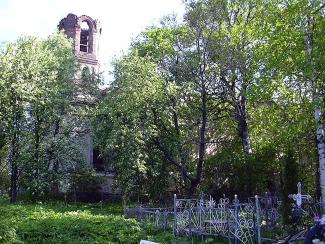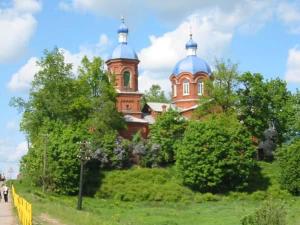Persons
/
Karpov, Grigory Ivanovich
Karpov, Grigory Ivanovich
Activities
Architect
Mentioned in articles:
|
hidden
|
Karpov, Grigory Ivanovich (1824- 1900), an architect
Grigory Ivanovich Karpov (1824- 1900), an architect. He graduated from the St. Petersburg Building College in 1848. He worked as an architect of the Alexander Nevski Monastery. From 1861 he became the architect of the St. Petersburg Eparchy. G.I.... more
|
|
|
|
hidden
|
The Transfiguration Cathedral (Vyborg Town)
The Cathedral of the Transfiguration Christ (the town of Vyborg, 1 Teatralny Square). The decision about building a new Russian church was taken in summer 1783 during staying Empress Catherine II in the town of Vyborg. A draft was presumably done... more
|
|
|
|
hidden
|
The Cathedral of the Resurrection of Christ (Luga Town)
The Cathedral of the Resurrection of Christ (Luga Town, 54 Kirov Street). In 1869 the trusteeship for building a new church was organised in connection with considerable growth of the parish people of the cathedral of St. Catherine the Martyr in... more
|
|
|
|
hidden
|
The Church of All Saints whose Light Shone Forth in Russian Land (Sosnovo Village, Priozersk District)
The Church of All Saints whose Light Shone Forth in Russian Land (Sosnovo Village, Priozersk District). In the 15th с the Orthodox church in the name of St Basil the Great, with attached chapels situated in the area of the preset villages of... more
|
|
|
|
hidden
|
The Church of the Dormition of the Mother of God (Terebushka Village, Kirovsk District)
The Church of the Dormition of the Mother of God (Terebushka Village, the Kirovsk District). The stone church was built during 1854-1855 and enlarged in 1868 according to the design of the architect K.I. Brandt. In 1879 a bell tower was... more
|
|
|
|
hidden
|
The Church of the Nativity of the Mother of God (Rozhdestveno Village, Gatchina District)
The Church of the Nativity of the Mother of God (Rozhdestveno Village, 2 Sokolova Street). The wooden church of St Nicholas was built in the Greznevsky Nikolsky pogost before 1500; in the 17th c, it was ruined under the Swedish rule. In ... more
|
|
|
|



